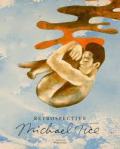
A RETROSPECTIVE
Feb. 7, 1962
SAN ANTONIO, TEXAS. We’d been there a little over a week now, and Barry and I, were no longer exhausted, unbathed, cold, and very nearly broke. The fact was, we found a two- story home to rent in the very old part of town. We were now bathed and rested. The floor heater was rattling through the grates. We took turns straddling it, so we were no longer cold. Also, we were no longer nearly broke. In fact, with the first month’s rent now out of my wallet and tucked, instead, into the landlady’s apron pocket along with a promissory note that the last month’s rent and a cleaning deposit would also be transferred to her apron pocket in one week (with the arrival of my California Unemployment Check) … we were very, very broke.
It had been Barry’s harebrained idea to pool our money together, gas up my MG Midget convertible and travel away from the comfort of our respective parents’ homes in Santa Maria, California, non-stop, to San Antonio, Texas.
 It was to be a grand adventure!
It was to be a grand adventure!
Barry’s mom crammed a paper bag with waxed-paper-wrapped peanut butter and jelly sandwiches, while mine provided the hard-boiled eggs. My dad, out of sight of my mom, slipped me a bill—I think, now, it was a twenty, but it might have been a ten. Money was tight for them. He was on a cop’s salary and my mom graded potatoes in a packing shed for just a little above minimum wage.
So, our first night in our rented two-story home in San Antonio, Texas, we ate the last few stale peanut butter and jellies and the rest of the eggs, the yokes of which were already turning greenish-gray.
#
LOOKING BACK, our first night there was a bit of a blur, but how will I ever forget being awakened in the morning by the chant ayeeeeeeeent-a-kidd’n … ayeeeeeeeent-a-kidd’n …? These strange sounds were punctuated with the clanging and scraping of metal, and then followed again by: ayeeeeeeeent-a-kidd’n. I looked out my bedroom window, craning my neck left and then right. Barry did the same from his window, since it faced a different direction. Neither of us could find the origin of the sound. We agreed it was human; the pitch was registered higher, so it was probably a female or an adolescent boy. It continued on while we sat in the kitchen, wondering aloud what we could do to score a breakfast. Ayeeeeeeeent-a-kidd’n. After a few such interruptions we decided, hungry or not, to drive through the neighborhood until we found out the source of this irritant.
the chant ayeeeeeeeent-a-kidd’n … ayeeeeeeeent-a-kidd’n …? These strange sounds were punctuated with the clanging and scraping of metal, and then followed again by: ayeeeeeeeent-a-kidd’n. I looked out my bedroom window, craning my neck left and then right. Barry did the same from his window, since it faced a different direction. Neither of us could find the origin of the sound. We agreed it was human; the pitch was registered higher, so it was probably a female or an adolescent boy. It continued on while we sat in the kitchen, wondering aloud what we could do to score a breakfast. Ayeeeeeeeent-a-kidd’n. After a few such interruptions we decided, hungry or not, to drive through the neighborhood until we found out the source of this irritant.
At the end of our block we hit pay-dirt.
There, sifting through the contents of a metal garbage can (plastic containers didn’t exist back then), we discovered a young someone, hunched over, half in and half out of the can, thick, stubby legs and disproportionately large backside straining with the effort of retrieving something from the bottom. We didn’t know conclusively that this was our prize until we heard echoed as from a canyon ayeeeeeeeent-a-kidd’n.
Barry turned to me and, spontaneously, we erupted into a fit of laughter. Head and shoulders popped up from the can and for the first time we were able to put gender with the sound. She was a female. Youngish, though it was hard to tell her age. Turning to us, she stared, unafraid, with more a look of curiosity. Her face was smudged, her eyes wide-set, the skin puffy and dark underneath. “Ayeeeeeeeent-a-kidd’n,” she said, without expression.
I stared, open-mouthed. She was a Mongolian Idiot! Okay, wait a minute … Don’t forget this was 1962. Down syndrome wasn’t part of the American lexicon. Mongoloid was, but that would have been seen more in print — probably the scientific journals. Barry’s sister was a Mongolian Idiot, too.
I was embarrassed for laughing. I didn’t know she was a Mongolian Idiot and I’d started laughing before I found out she was one, but I wasn’t sure that she knew when my laughter started.
Truth be known, I’d have been vaguely uncomfortable, anyway, standing there facing her. As with most of us, there was a barrier I tended to erect between me and whatever was unfamiliar.
Barry lacked that unfamiliarity. He felt an immediate bond.
“Hi,” he said.
She didn’t acknowledge his greeting. She didn’t say anything, even ayeeeeeeeent-a-kidd’n. She just grabbed a few things beside the garbage can, never taking her eyes off us, and turned and walked away.
Back in the car, I told Barry, “I felt bad about laughing. I didn’t know she was a Mongolian Idiot.”
Barry nodded. “I hope she has a mom and dad to take care of her. Do you think she’s hungry? I hope she wasn’t digging around for food.”
~
FOR THE MONTHS WE LIVED IN THAT OLD TWO-STORY HOME IN SAN ANTONIO, we heard ayeeeeeeeent-a-kidd’n so often it became as invisible as the chirping of birds two months into the season of spring. I think Barry and I agreed that the Oxford English version of her chant would have been “I’m not Kidding”. And, if that’s true, then what was she not kidding about? And, more importantly, what emotional hammer could have slammed those bizarre constellation of words into her mind, leaving them imprisoned there.
I do remember telling Barry that there was a story there, and it was a story that needed to be told. And, now, over fifty years later, as close as I can get to the story is the incomplete newspaper version, the one you’ve been given here: the who, what, when, where—not even the how … and not nearly close to the why!
 The timbre and the pitch of that chant, though, still resonate through my mind to this day. And, it always conjures up images of reckless youth, adventure and boundless dreams.
The timbre and the pitch of that chant, though, still resonate through my mind to this day. And, it always conjures up images of reckless youth, adventure and boundless dreams.
I had an experience similar to that a number of years ago…It left a mark on me forever, and I cry every time I think of it…these are people who waft between dimensions, not understanding which world they belong in. My heart goes out to them.
Well, put, Rebecca! “Not knowing what world they belong in!” Profound! Thanks for sharing your experience.
The words that come out of our mouths have changed – political correctness masks our natural responses – but taken in context, you’ve painted an earthy picture of reality then and now with how the disabled can suffer when they haven’t sufficient care.
Looking back, though, I can’t see any justification for the use of “idiot” except that it was word that was used. It had to forever color the way we responded to the individual.
Reblogged this on Justin Kassab.
Many broad and magnificent thanks to you, Justin for reblogging this post. I’m so gratified you found it worthwhile!
Yea. I too, wonder what it was that trapped that thought. 😀
Yes, we human beings are a strange breed of plants that have a hard time keeping our roots moving without making fools of ourselves.
I remember the confusion of knowing they were ill and not liking the word used to descibe them. It became a relief in my heart, when there was finally a recognition that it was a disability with a name.
Jay, finally read ‘The Contest’ what a great short. One of the 10 best I have ever read in my life. Felt a strong connection to you as i read the ending!
Much love to you and all your family,
Penny
Penny, what a joy to hear from you again! Thanks for dropping by. “The Contest”, huh? Ummm, you are sure it was one I wrote? I’d love to take credit for your praise, and I certainly don’t want you to un-pat my back, but I don’t remember it by the title. Do let me know. If I didn’t write it and it was one of the 10 best you’d ever read, I’d certainly want to read it!
oopsy ‘Keeping Score’ can’t believe I tried to rename your short 😛
Now, that’s better! Yes, that’s one of my personal favorites. And, it continues to be well-received. Thanks for mentioning it.
I remember when it was perfectly normal and not considered insulting to call people with Down’s Syndrome Mongolian Idiots. There actually were three categories depending on the individual’s IQ. I’m not sure of the order any more, but the terms were: Idiot, Moron and Imbecile. Now listening to those words they sound so insulting and degrading, but that happened because the general public began using the words as insults. In the beginning they were medical terms. I think the switch to Down’s Syndrome is so much better. As a culture we’ve learned a few things over the decades.
BRAVO! Well put! Thank you for dropping by and giving the readers your special take on the issue. I’m so happy I once again stumbled over something while writing my blog post that touched a moral nerve.
Covered with a language full article done for me, I think the view.